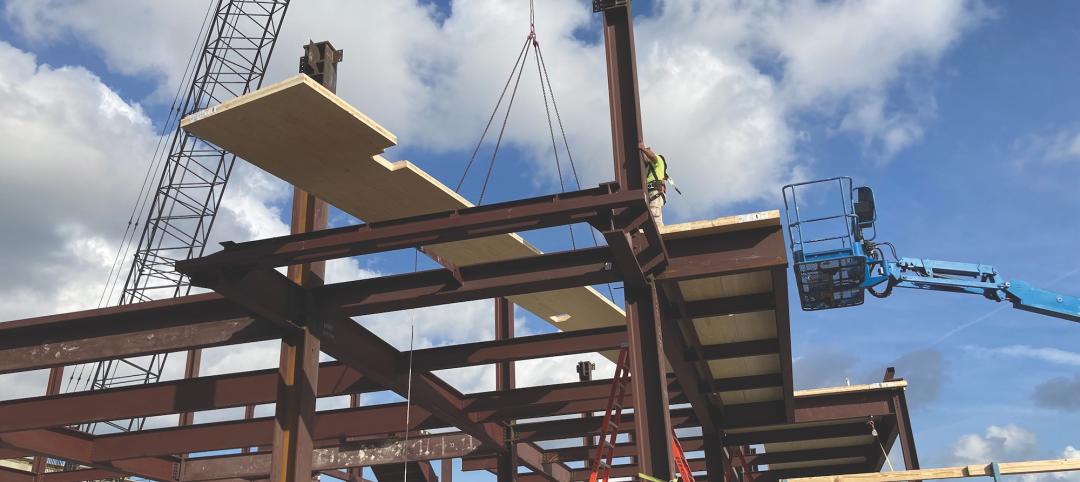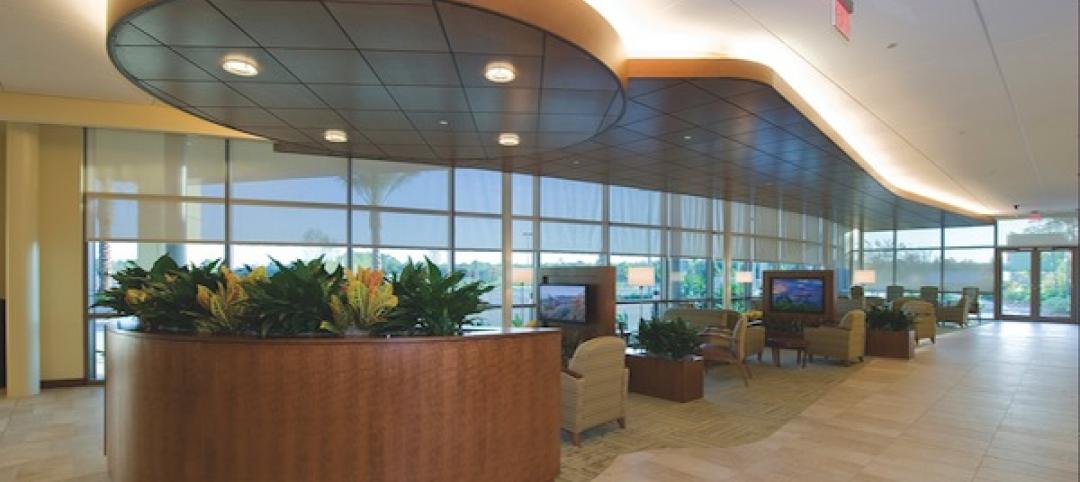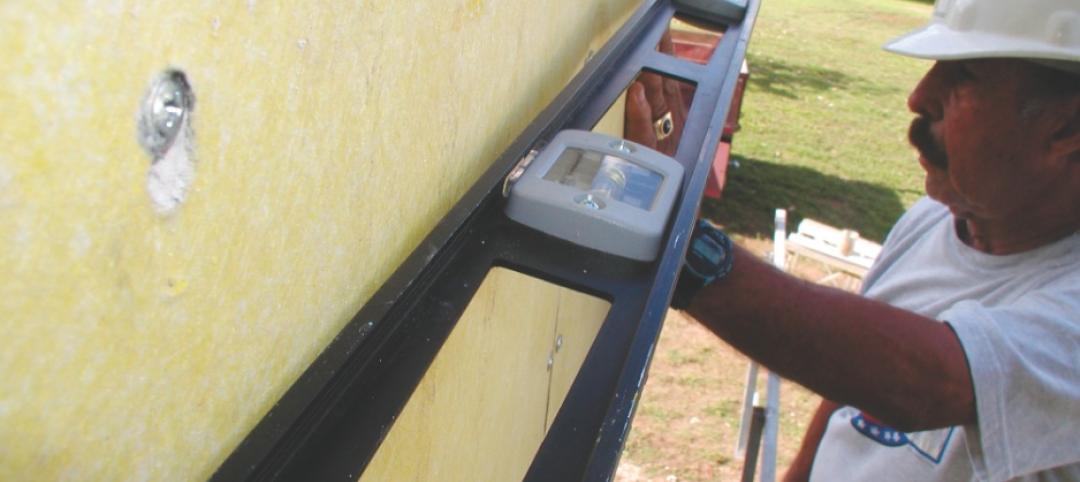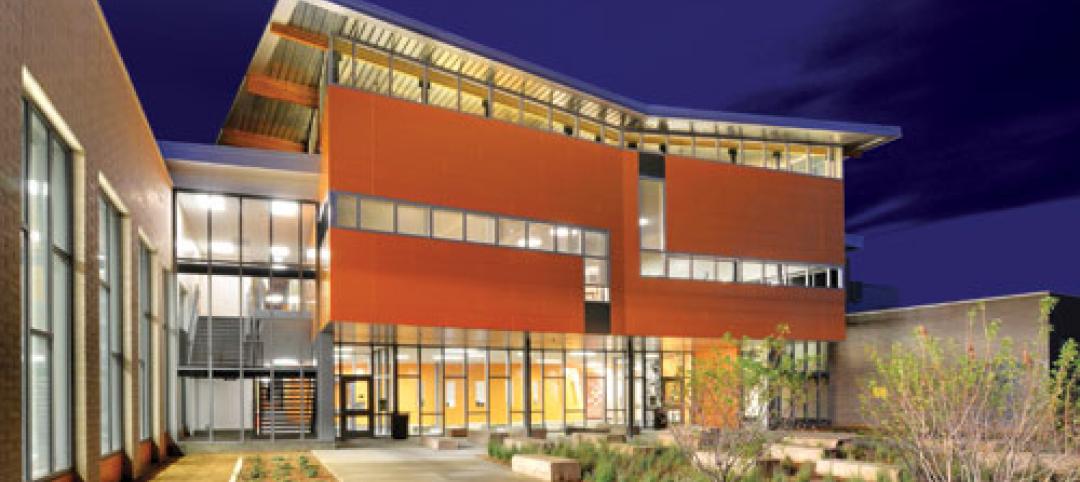On September 29, the MILL National Training Center opened in Colorado Springs, Colo. The 46,000-sf facility, in a former potato chip factory, is being touted as the first of its kind in the nation to offer high school students, military veterans, teachers, and anyone looking to start a new career training in woodworking manufacturing, cabinetry, and construction.
The MILL—which stands for Manufacturing Industry Learning Labs—opened with an estimated $3 million in equipment, more than $500,000 of which was donated by Stiles Manufacturing, a Grand Rapids, Mich.-based company that makes computer numerically controlled devices.
All told, the MILL is working with 40 business partners, including paint manufacturer and retailer Sherwin Williams, which is opening its second design center in the country (https://www.youtube.com/watch?v=mL3g6Zp2J0Y&t=61s) at the Training Center, and has donated $300,000 to its operations. Locally based RTA Architects provided architectural services to The MILL in exchange for access to its high-tech machines to develop prototypes. The Wood Machinery Manufacturers of America and the Woodworking Machinery Industry Association donated $25,000.
The facility, near Shriver Air Force Base, is on a Vocational and Educational Campus sponsored by two school districts: Peyton School District 23-JT and Widefield School District 3. The genesis of the MILL can be traced to woodworking manufacturing classes that Peyton, a school with 600 students, started offering its students in the fall of 2016, in an old school east of Colorado Springs.
The MILL's Founder and President is Dean Mattson, a former cabinetmaker whom Peyton hired in 2015 to help get its school’s woodworking classes off the ground. Mattson had launched a similar program for Oregon’s North Salem High School that, in six years, turned out 3,000 skilled workers. Mattson was unavailable for comment about the Mill.
Enrollment for those classes at Peyton quickly grew, from 40 the first semester to 100 last fall. Thirty-five of those students are from the Widefield district, which became aware of this program via an open house that Peyton’s superintendent Tim Kistler hosted to show it off.
While 50 students continue to be enrolled in Peyton’s woodworking courses, 85 of the district’s students now attend the MILL’s woodworking classes, and 50 its construction classes, according to Kistler. (Each of these sessions is 90 minutes long, four days per week. Kistler says the school will go to five days a week next year.) A total of six school districts are bussing kids to either the MILL or to Peyton.
Widefield, a school district with 9,300 students, paid $1.1 million to buy the building that the Mill operates from. Peyton will pay Widefield back until each district is a 50% owner.
The 46,000-sf MILL training center is equipped with more than $3 million worth of machinery. Image: Courtesy of RTA Architects and The MILL
The rationale behind The MILL National Training Center is the ongoing shortage of skilled construction labor. In their third-quarter 2017 report, USG Corporation and the U.S. Chamber of Commerce found that 91% of contractors polled are at least moderately concerned about the skill levels of their workforces. And 60% said they are still having trouble finding skilled workers, particularly electrical, HVAC, roofing, sheet metal, and mechanical installers.
The construction industry’s 4.5% unemployment rate is the lowest it’s been in a decade. The trade group Associated General Contractors reported that in October, construction employment increased in only half of the states compared to the same month a year ago, “a total that would probably have been higher if workers were available,” said AGC’s economist Ken Simonson.
The MILL’s courses, which are each one semester (53 to 63 instructional hours), offer a career-training path that enables graduates to be nationally certified in the use of woodworking machines, manufacturing equipment, software, and production skills. Students work toward earning a Woodwork Career Alliance (WCA) Certification Passport, which equates to a national certification credential to operate woodworking machinery and apply lean manufacturing principles in any kind of secondary wood or other manufacturing setting.
The MILL currently has two instructions for its woodworking courses, and two for its construction courses.
Public school students attend for free, with their school districts picking up the costs. Next year, the courses will be opened, on a fee basis, to military veterans and other people looking to get into the construction field.
On February 7-9, the MILL Academy will offer a three-day seminar for teachers and administrators who want to learn how to build support for an industrial arts program in their schools, including public-private partnerships. Participation in that session costs between $2,295 and $2,995 per person, with discounts for multiple enrollments from the same organization.
The MILL has the capacity to handle up to 1,000 students per semester, and Kistler thinks it can hit or exceed that number.
A condition of Stiles Manufacturing’s equipment donation was that the MILL be located within 15 minutes of Colorado Springs’ airport, and near restaurants and hotels, to abet the MILL's national recruitment efforts. An estimated 77,000 companies offer jobs that require Stiles tools. In February, Stiles is sending a contingent of employees and product users for training. Other manufacturers have indicated that they’d like to use the facility for the same purpose.
Kistler foresees the MILL National Training Center eventually becoming a vocational high school by day, and a place for continuing education by afternoon and night.
Related Stories
Sponsored | Steel Buildings | Nov 7, 2022
Steel structures offer faster path to climate benefits
Faster delivery of buildings isn’t always associated with sustainability benefits or long-term value, but things are changing. An instructive case is in the development of steel structures that not only allow speedier erection times, but also can reduce embodied carbon and create durable, highly resilient building approaches.
Sponsored | BD+C University Course | Oct 15, 2021
7 game-changing trends in structural engineering
Here are seven key areas where innovation in structural engineering is driving evolution.
Continuing Education and Life Time Learning | Apr 3, 2020
Online technical training sessions on tankless water heaters and boilers
Tankless water heaters and boiler training for plumbing contractors.
| Dec 28, 2014
New trends in ceiling designs and materials [AIA course]
A broad array of new and improved ceiling products offers designers everything from superior acoustics and closed-loop, recycled content to eased integration with lighting systems, HVAC diffusers, fire sprinkler heads, and other overhead problems. This course describes how Building Teams are exploring ways to go beyond the treatment of ceilings as white, monolithic planes.
| Mar 20, 2014
Common EIFS failures, and how to prevent them
Poor workmanship, impact damage, building movement, and incompatible or unsound substrate are among the major culprits of EIFS problems.
| Sep 15, 2013
How to build a rainscreen using fiber cement panels - AIA/CEU course
This course will review the cause and effects of moisture intrusion and explain how fiber cement panels can be used as a rain screen to reduce moisture build-up, rotting interior walls, and mold growth.
| Aug 26, 2013
13 must-attend continuing education sessions at BUILDINGChicago
Building Design+Construction's new conference and expo, BUILDINGChicago, kicks off in two weeks. The three-day event will feature more than 65 AIA CES and GBCI accredited sessions, on everything from building information modeling and post-occupancy evaluations to net-zero projects and LEED training. Here are 13 sessions I'm planning to attend.
| Jul 19, 2012
Suffolk Construction launches subcontractor development series
Professional certificate program to provide core construction management skills to disadvantaged, minority, and women business enterprises.
| Jul 16, 2012
BD+C Under 40 Leadership Summit scheduled
Attendee registration for U40 Summit II now open.
| Jul 11, 2012
New BDC University course: Design Criteria for Ceramic Tile/Stone Installations
Everyone that successfully completed to course will receive 1.0 HSW/LU AIA LU.
















